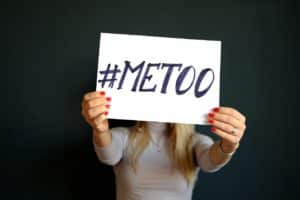(This article was published on January 8, 2018 in the Baltimore Sun.)
The Golden Globe Awards this Sunday put the #MeToo movement in the spotlight. Many actresses wore black to express to solidarity, and a number of them brought important activists as their dates. Millions were raised for a legal defense fund to help women fight sexual harassment and abuse.
This is good news for women around the country. The #MeToo movement has shown that women who have been harassed in the workplace are far from alone, and that even powerful men can be brought down for their misdeeds. It has demonstrated that consumers, companies and voters do not want to bolster misbehaving men. Increased funding for legal organizations will not only help women bring cases but also improve case law through impact litigation.
Yet for this moment to represent a permanent shift rather than a large aberration, whistleblower laws and policies protecting those who disclose inappropriate sexual behavior by colleagues and bosses must be significantly strengthened. It is notable that many women who have come forward to report misconduct (or much worse) have themselves been prominent figures: actresses and singers like Taylor Swift, Ashley Judd, Rose McGowan and Alyssa Milano, and media personalities like Megyn Kelly and Wendy Walsh all feature among the “Silence Breakers” who were named person of the year by Time magazine. Salma Hayek’s recent article describing predatory and revolting behavior toward her by film mogul Harvey Weinstein catapulted to the most read article on the New York Times site.




